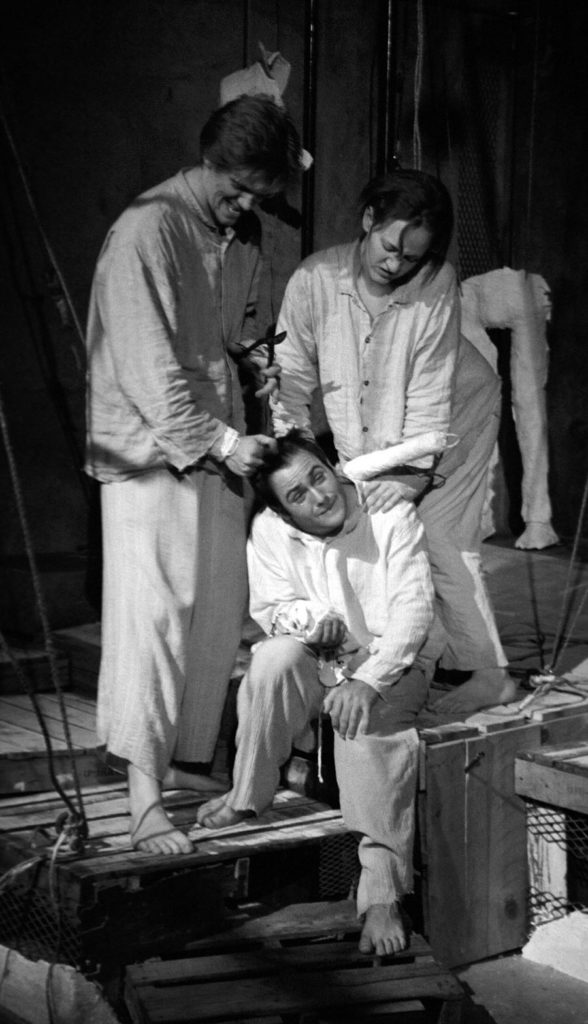Russian playwright Anton Chekhov wasn’t the wimp most theatergoers think he was. Judging by Buntport Theater’s gutsy adaptation of Chekhov’s short story “Ward #6,” the diminutive, bespectacled and tubercular good doctor possessed the poetic lyricism of Dylan Thomas, the incisive social conscience of George Bernard Shaw, the capacity to embrace suffering on a scale to rival Dostoyevsky, the manic paranoia of Kafka and the political rage of Bertolt Brecht. “The Seagull,” “Three Sisters,” “Uncle Vanya,” and “The Cherry Orchard” may be masterpieces of sublime and ironic understatement, but “Ward #6” shows what can happen when a little guy with a sharp pen and a great mind loses his temper.
Set in an appalling asylum in 19th century Russia, “Ward #6” blows the lid off the abuses that result when socialized medicine and prosaic minds resort to confinement as a means to silence dissidents and non-conformists. An intelligent, innocent man (Erik Edborg) adjusts to a life of misery and despair when he is denounced and sentenced to spend the rest of his days in a brutal sanitarium. An idealistic doctor (Brian Colonna) tries to help the inmate transcend his state through intellectual exercise, but finds that he is dragged down to annihilation by grinding, relentless and degrading reality when he too becomes a “patient.”
Buntport Theater is a collaborative, experimental theater company with an exciting and innovative artistic sensibility. The production’s pop sculpture scenery, including props, costume accessories and evocative plaster body casts, are suspended from the ceiling then lowered on pulleys when needed. The stage space, arranged “corner” style in Buntport’s converted warehouse space, is a jumbled conglomeration of pallets, rotting planks, expanded steel grates and manila rope. The barefoot actors wear drab rags. There is no place for comfort or safety in this play.
Four actors, including Hannah Duggan, Erin Rollman, Edborg and Colonna, play more than 10 roles and frequently exchange characters, though they sometimes stay in one part for extended scenes. They shout and suffer, plead and roar their way through the pessimistic script, which in typical Russian fashion, offers no hope of deliverance from a wretched fate.
The ensemble effectively expresses impotent rage and fearsome fatalism, but the production is so self-consciously stylized it becomes impossible to feel sympathy for individual characters. Like the very system it condemns, the production style dehumanizes the play’s populace, making them little more than nightmarish scarecrows and macabre mouthpieces for Chekhov’s unrestrained outrage.
Buntport Theater, which has mounted primarily original comedies in the past, is a unique creative force in the community, and bears close watching.
-Patrick Dorn, August 9, 2001, Boulder Daily Camera
